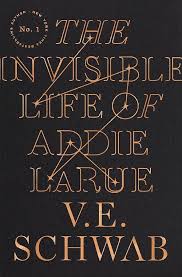Chapter I
byChapter I introduces Henry, born on September 4, 2013, in New York City, a city that both shapes and intensifies the emotional struggles he experiences. From the outset, Henry’s existence is marked by an emotional sensitivity beyond the ordinary, something that traces back to the congenital condition he was born with—a heart that was repaired, yet somehow left overly exposed. His heart, though physically fixed by surgeons, feels too vulnerable, amplifying the highs and lows of life to an unbearable degree. As he moves through life, his perception of the world becomes one of a constant, heightened sensitivity, where every joy feels fleeting and every sorrow weighs him down with immense force. It’s as if his emotional landscape has no boundaries, causing him to grapple with the intensity of life’s experiences in a way that most others cannot comprehend.
Despite his best efforts to manage his overwhelming emotions, Henry’s attempts to quiet the internal chaos lead him into destructive habits, particularly substance abuse. He becomes consumed by the desire to escape the reality of his feelings, turning to alcohol and pills as a means to numb his sensitivity to the world around him. As his life moves forward, he drifts aimlessly from one phase to the next—transitioning from a career in academia into theology, which, rather than offering him the answers he seeks, only deepens his existential crisis. Even his most hopeful endeavors—such as the job he thought would provide stability—only serve to underscore his growing sense of emptiness and disillusionment. A failed European tour, once viewed as a potential escape, only adds to his feeling of hopelessness, leaving him questioning his place in the world. Despite his relentless forward momentum, it feels as though he is always moving further away from understanding who he truly is.
The turning point in Henry’s life comes with his encounter with Tabitha Masters, a dancer whose vivacity and presence briefly offer Henry a glimpse of something real and beautiful in an otherwise turbulent existence. Their instant connection blossoms into a two-year relationship filled with moments of shared joy and connection, yet underneath the surface, Henry struggles with the fear that his emotional dependency on Tabitha is unsustainable. He leans on her for stability, hoping she will be the one to fix the unspoken cracks within him, but the truth is that this reliance creates an undercurrent of fragility in their relationship. The inevitable breaking point comes when Tabitha, sensing the imbalance, declines Henry’s marriage proposal, further confirming his deep-seated fear of inadequacy. Her rejection becomes the ultimate reflection of the internal war Henry has been fighting all along, a manifestation of his belief that he is never enough to truly be loved.
In the wake of the breakup, Henry is left to navigate through a sea of numbness, an emotional fog that drapes over him like a heavy blanket. He finds himself surrounded by friends who, despite their well-meaning support, can’t reach the depth of his despair. Their cliched words of comfort only serve to deepen his isolation, and his reliance on alcohol to numb the pain leads him to further emotional and physical turmoil. This culminates in an evening of recklessness, where a combination of alcohol and poor decisions results in both emotional and physical injury. A significant moment during this time involves Henry losing and then retrieving a ring that held sentimental value, symbolizing the ongoing battle between his idealistic dreams and the brutal reality of his unfulfilled desires. This event encapsulates Henry’s struggle to find meaning and validation in a world that seems determined to take more than it offers.
Through this chapter, we are presented with the portrait of a man battling with the weight of his own emotional sensitivity, a condition that leaves him vulnerable to the world’s cruelties. Henry’s quest for understanding, acceptance, and love is defined by a constant tension between his inner desires and the harshness of the world around him. His relationships—whether with Tabitha, his friends, or even the fleeting comforts of alcohol—serve as a reflection of his deeper longing for something more meaningful. This chapter paints an intimate and vulnerable portrait of a man who is, at once, deeply sensitive to the world and yet perpetually disconnected from it, a complex journey that many readers will find resonates with their own experiences of seeking fulfillment amidst the chaos of life.


